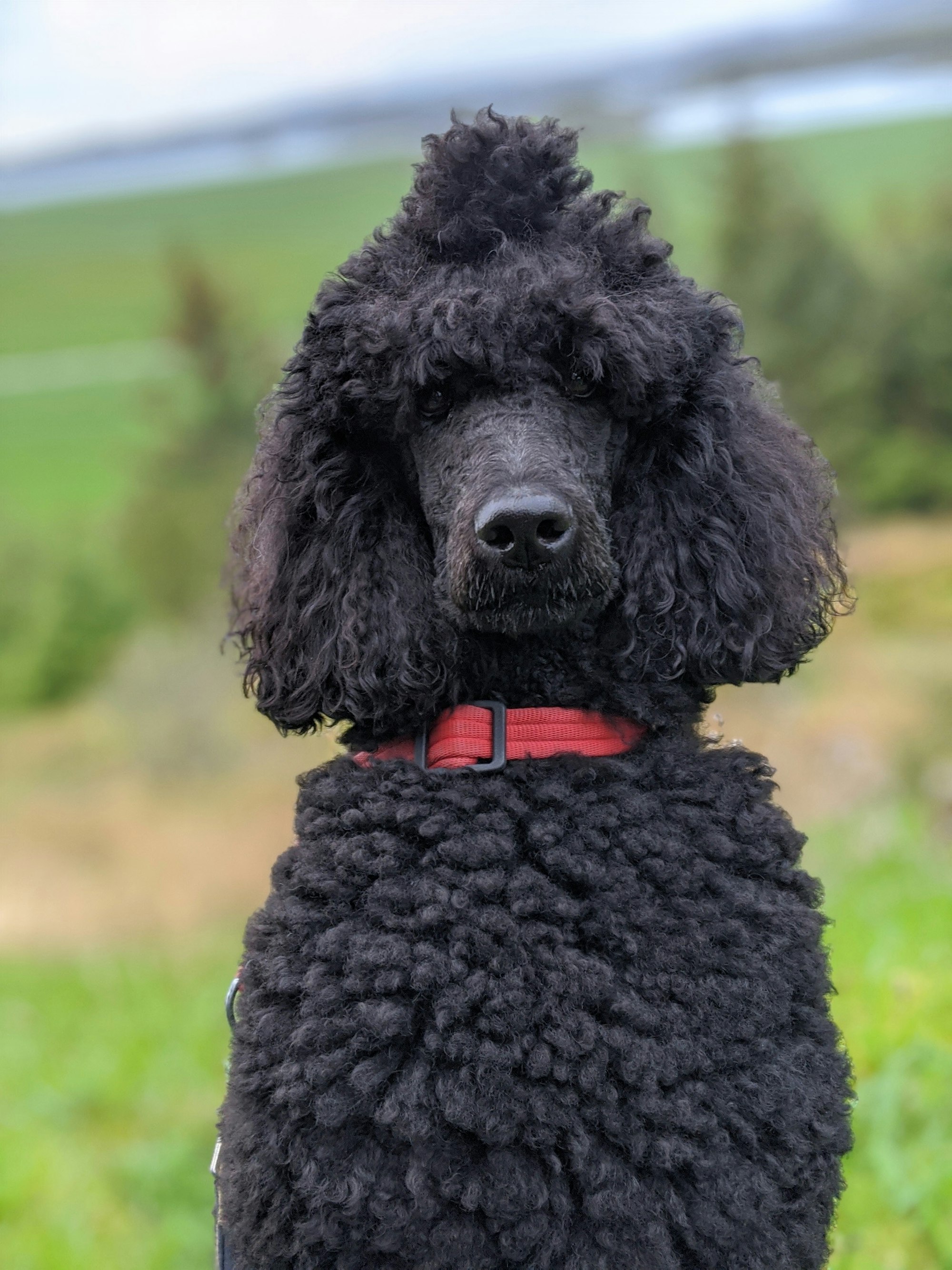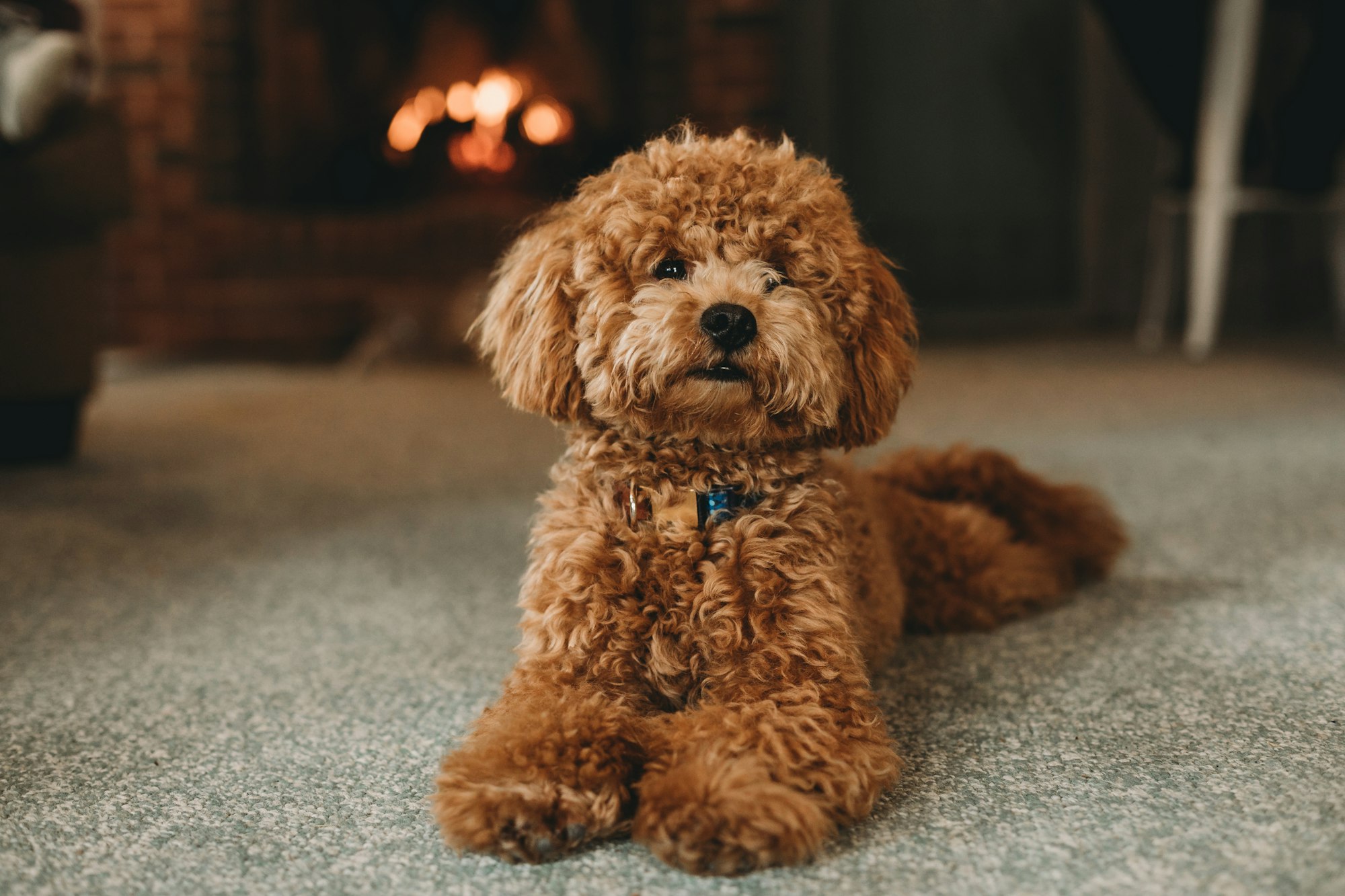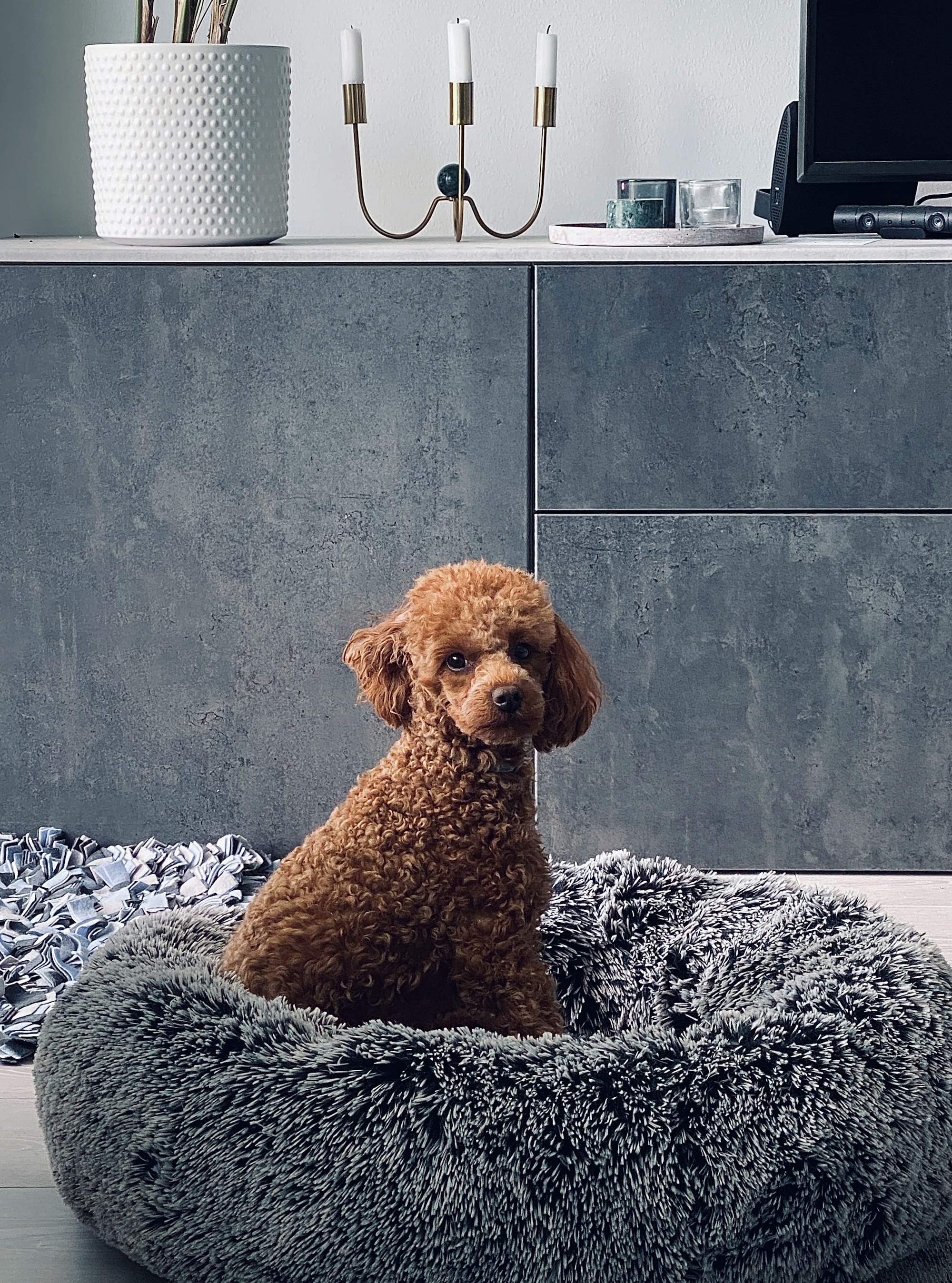Poodles are a popular breed of dog known for their curly, hypoallergenic coats, and their intelligent and friendly personalities. One of the unique things about poodles is that they come in three different sizes: standard, miniature, and toy. Each size has its distinctive characteristics and traits, and choosing the right size poodle for your family and lifestyle is an important decision. In this article, we will discuss the different sizes of poodles and what makes them special.

Standard Poodles
Standard poodles are the largest of the poodle sizes and can weigh between 45 and 70 pounds. They are elegant, athletic dogs with a proud and regal stance. Standard poodles have a dense, curly coat that is hypoallergenic, making them a popular choice for people with allergies.
Characteristics of the Standard Poodle
Standard poodles are highly intelligent, trainable, and loyal dogs. They are known for their playful and outgoing personalities and are great family pets. Standard poodles are also athletic and require plenty of exercises to keep them healthy and happy. They are also known for their versatility, excelling in many activities, including dog sports, obedience, and hunting.
Care and Training of the Standard Poodle
Standard poodles require regular exercise and grooming to stay healthy and happy. They need daily walks and playtime to burn off excess energy and prevent boredom. Standard poodles also require regular grooming, including brushing and clipping, to keep their coats in good condition. They are highly trainable dogs and respond well to positive reinforcement training methods.
Miniature Poodles
Miniature poodles are smaller than standard poodles and weigh between 10 and 15 pounds. They have the same curly, hypoallergenic coat as standard poodles, but they are more compact in size. Miniature poodles were originally bred as companion dogs and have friendly and affectionate personalities. This size of poodle can also be called the Moyen Poodle.
Miniature poodles are known for their outgoing personalities and love to be around people. They are playful and affectionate dogs and make great family pets. Miniature poodles are also highly intelligent and trainable, making them a popular choice for obedience competitions.
Care and Training of the Miniature Poodles
Miniature poodles require regular exercise and grooming, just like standard poodles. They also require socialization and training to prevent behavioral issues. Miniature poodles are highly trainable and respond well to positive reinforcement training methods.
Toy Poodles
Toy poodles are the smallest of the poodle sizes and weigh between 4 and 6 pounds. Another, they are standing at just 10 inches tall at the shoulder. They are the perfect size for apartment living and are popular with people who have limited space. Toy poodles have the same curly, hypoallergenic coat as standard and miniature poodles. Despite their small size, they are energetic, and intelligent, which makes them excellent companion pets. In this article, we will explore the characteristics, care, and training of Toy Poodles in detail.
Here, we will explore the characteristics, care, and training of Toy Poodles in detail.

Appearance of the Toy Poodle
Toy Poodles have a distinctive appearance with a square-shaped body, long and fluffy coat, and tightly curled hair. Their coat comes in a variety of colors, including white, black, brown, silver, gray, and apricot. Their ears hang close to their head, and their tail is typically docked to about half their original length.
Temperament of the Toy Poodle
Toy Poodles are known for their lively, curious, and playful personalities. They are also very intelligent and quick learners, making them easy to train. They enjoy being around people and can make great lap dogs.
Health of the Toy Poodle
Toy Poodles are generally a healthy breed, but like all dogs, they are susceptible to certain health issues. Some of the common health problems that Toy Poodles may face include hip dysplasia, patellar luxation, epilepsy, and progressive retinal atrophy.
Diet and Exercise of the Toy Poodle
Toy Poodles have high energy levels and require daily exercise to keep them healthy and happy. They also have small stomachs, so it's important to feed them a diet that is rich in nutrients and easy to digest. Toy Poodles should be fed high-quality dog food that is appropriate for their age, weight, and activity level.
Grooming of the Toy Poodle
Toy Poodles require regular grooming to keep their coat healthy and prevent matting. They should be brushed daily and taken to a professional groomer every 6-8 weeks for a haircut. Their ears should also be cleaned regularly to prevent infections.
Training and Socialization of the Toy Poodle
Toy Poodles are highly intelligent and can be trained easily. Positive reinforcement training methods work best with this breed. Socialization is also necessary for Toy Poodles to help them develop good behavior and interact well with other animals and people.
In conclusion, Toy Poodles are a small but mighty breed of dog that make great pets. They are energetic, intelligent, and playful, but also require proper care and training to keep them healthy and happy. With the right diet, exercise, grooming, and training, Toy Poodles can make loyal and loving companions.
Choosing the Right Poodle Size
Poodles come in three different sizes: Standard, Miniature, and Toy. Due to it’s each size has unique characteristics and considerations to keep in mind when choosing the right poodle size for you. In this article, we will discuss further health considerations, grooming, and training for poodles of all sizes, and provide a conclusion and FAQs to help you make an informed decision. First, go through with Poodles sizes, in brief.
1. Standard Poodles
Standard Poodles are the largest of the poodle sizes, standing at over 15 inches tall at the shoulder and weighing between 45 and 70 pounds. They are known for their elegance, intelligence, and athleticism. Standard Poodles are a good fit for families with large living spaces and yards, and those who enjoy outdoor activities such as hiking and swimming.
2. Miniature Poodles
Miniature Poodles are medium-sized poodles, standing between 10 and 15 inches tall at the shoulder and weighing between 10 and 15 pounds. They are known for their intelligence, affectionate nature, and adaptability. Miniature Poodles are a good fit for families with small living spaces or apartments and those who prefer indoor activities.
3. Toy Poodles
Toy Poodles are the smallest of the poodle sizes, standing at just 10 inches tall at the shoulder and weighing between 4 to 6 pounds. They are known for their lively, curious, and playful personalities. Toy Poodles are a good fit for families with small living spaces or apartments, and those who prefer indoor activities.

Health Considerations
All poodle sizes can be prone to specific health issues, and it's essential to be aware of these considerations when choosing a poodle size. Some of the common health problems that poodles may face include hip dysplasia, patellar luxation, epilepsy, and progressive retinal atrophy. Regular veterinary check-ups and proper nutrition and exercise can help prevent or manage these issues.
Poodle Grooming
Poodles are known for their distinctive curly coat, which requires regular grooming to keep them healthy and prevent matting. Depending on the size of the poodle, grooming needs can vary. Standard Poodles require more grooming than Miniature or Toy Poodles due to their larger size. However, all poodles require daily brushing and regular visits to a professional groomer every 6-8 weeks for a haircut.
Poodle Training
Poodles are intelligent and easy to train, making them great companion pets. Positive reinforcement training methods work best with this breed. Socialization is also necessary for poodles to help them develop good behavior and interact well with other animals and people.
Poodles are known for their intelligence and trainability, making them a popular choice for many pet owners. However, it's crucial to approach poodle training with patience, consistency, and positive reinforcement. Here are some tips for training your poodle:
1. Start with basic obedience commands: Begin with simple commands like "sit," "stay," and "come." Use positive reinforcement techniques like treats and praise to encourage your poodle to follow these commands.
2. Socialization: Poodles are social animals and should be exposed to different people, animals, and environments. This will help them develop good behavior and confidence in various situations.
3. Consistency: Consistency is key in poodle training. Establish a routine and stick to it to help your poodle understand what is expected of them.
4. Positive reinforcement: Poodles respond well to positive reinforcement, so be sure to praise and reward them for good behavior.
5. Avoid punishment: Punishment is not an effective training method for poodles. Instead, focus on positive reinforcement to encourage good behavior.
6. Patience: Training a poodle takes time and patience. Don't get frustrated if your poodle doesn't learn a command right away. Keep practicing and be patient.
7. Enroll in a training class: Consider enrolling your poodle in a training class to learn more advanced obedience commands and socialization skills.
Poodle training can be a fun and rewarding experience for both you and your pet. Remember to approach training with patience, consistency, and positive reinforcement, and always avoid punishment. With time and practice, your poodle can become a well-behaved and obedient companion.
Conclusion
Choosing the right poodle size for you depends on your lifestyle and living situation. Standard Poodles are great for active families with large living spaces, while Miniature and Toy Poodles are better suited for smaller living spaces and indoor activities. Regardless of the size, all poodles require proper care, grooming, and training to keep them healthy and happy.
FAQs
1. Do poodles require a lot of exercise?
Yes, poodles require daily exercise to keep them healthy and happy. The amount of exercise needed can vary based on the size of the poodle.
2. Are poodles hypoallergenic?
Yes, poodles are considered hypoallergenic dogs because they do not shed much, which can reduce the number of allergens in the home.
3. How often should poodles be groomed?
Poodles require regular grooming to maintain their curly coat and prevent matting. It is recommended to brush your poodle daily and take them to a professional groomer every 6-8 weeks for a haircut.
4. What is the lifespan of a poodle?
The lifespan of a poodle can vary depending on the size of the dog. Toy poodles typically live between 14-18 years, while standard poodles can live between 10-12 years. Proper care, diet, and exercise can also have an impact on a poodle's lifespan.
5. How long does it take to train a poodle?
The time it takes to train a poodle varies depending on the individual dog and the training method used. However, with patience, consistency, and positive reinforcement, most poodles can learn basic obedience commands in a few weeks.
6. Can poodles be trained to do tricks?
Yes, poodles are highly trainable and can learn a variety of tricks. Positive reinforcement techniques can be used to teach your poodle fun and impressive tricks.
7. Should I use a crate to train my poodle?
Crate training can be an effective way to house-train your poodle and keep them safe while you're away from home. However, it's critical to use the crate properly and avoid using it as a punishment.
8. Can older poodles be trained?
Yes, older poodles can still be trained. However, it may take more time and patience to teach an older dog new tricks.
9. Is professional training necessary for poodles?
Professional training is not necessary for all poodles, but it can be beneficial for those who need more advanced training or have behavior issues that require professional guidance.
10. Do all poodles have the same temperament regardless of size?
Yes, poodles generally have the same temperament regardless of size. They are known for being intelligent, trainable, and affectionate dogs.
For more helpful articles about pet-parenting tips, check out the Off Leash blog at TryFi.com.
Want to know more about TryFi.com? The Fi Dog Collar is a GPS tracking collar that not only keeps track of your dog’s location, activity levels, and sleep patterns, but it also alerts you if your dog escapes your backyard. This is the fastest way to find your dog after an escape. Try the Fi Dog Collar today!






